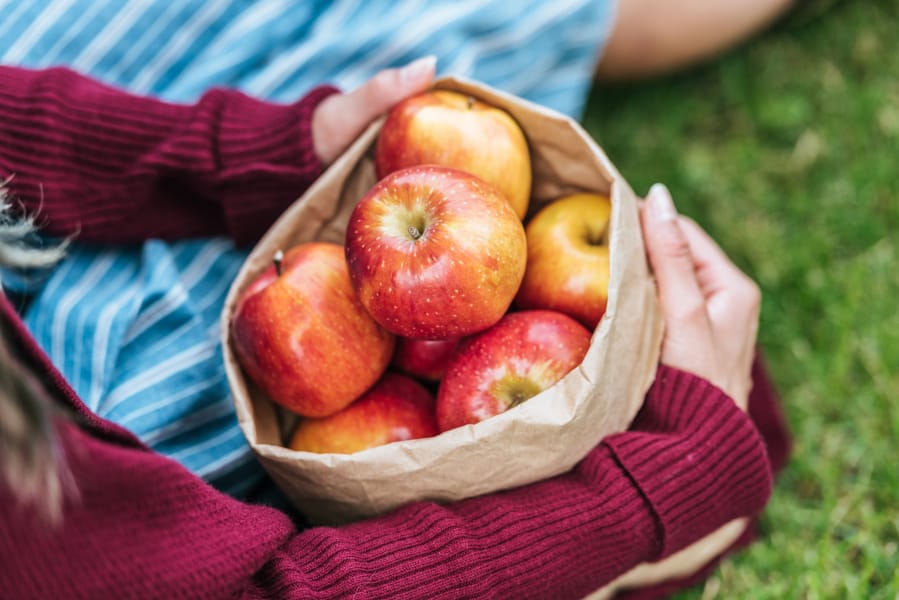Apples are a favorite fruit for many. They are a staple in our American diet and are a perfectly packed food for a quick, on-the-go snack. They are a late-summer fruit that starts ripening in August. Apples store well in cold storage, making them available in any grocery store year-round. We associate them with Adam and Eve, Johnny Appleseed, schoolteachers, intelligence and computers. But I digress …
Apples are a healthy food, with only 95 calories for an average medium apple. They pack a lot of great potassium (193 milligrams) and calcium (10 milligrams) along with 19 grams of sugar and 4 grams of dietary fiber. When picking out apples to eat, choose firm, shiny, smooth-skinned apples with intact stems. They should smell fresh and not musty. To ensure their freshness, keep them in a plastic bag in the refrigerator away from strong-smelling foods. Apples are best when eaten within two to three weeks after purchase or picking.
Apples are a versatile food. The common ways we consume apples are fresh/raw, apple juice, applesauce, cider, crisp and pie, but my personal favorite is apple butter. While apple butter doesn’t have any butter in it, you can just spread it on toast as is. Apple butter can also be paired with pork chops or roasts, sausages, or other savory dishes. It is also used in baked goods as well. It is easily made with no sugar added, but packs a lot of flavor when combined with cinnamon, cloves, nutmeg and allspice.
Don’t think you have to preserve apple butter for year-round use, although that is an awesome idea, it can be prepared fresh for any recipe with a few fresh apples from the market.



